On March 28, the Project for Household Waste Separation "O-DVA-JA-MO" which is implemented in 17 municipalities in Serbia, was presented to the citizens of Pančevo, The goal of the Project for Household Waste Separation "O-DVA-JA-MO" is to recycle part of the waste generated in households, in order to reduce the amounts that end up in landfills, with the aim of increasing the recycling rate in these municipalities to 15% in the next two years. According to existing data, the recycling rate of household waste in Serbia is less than 2%, while in the EU 48% of municipal waste is recycled.
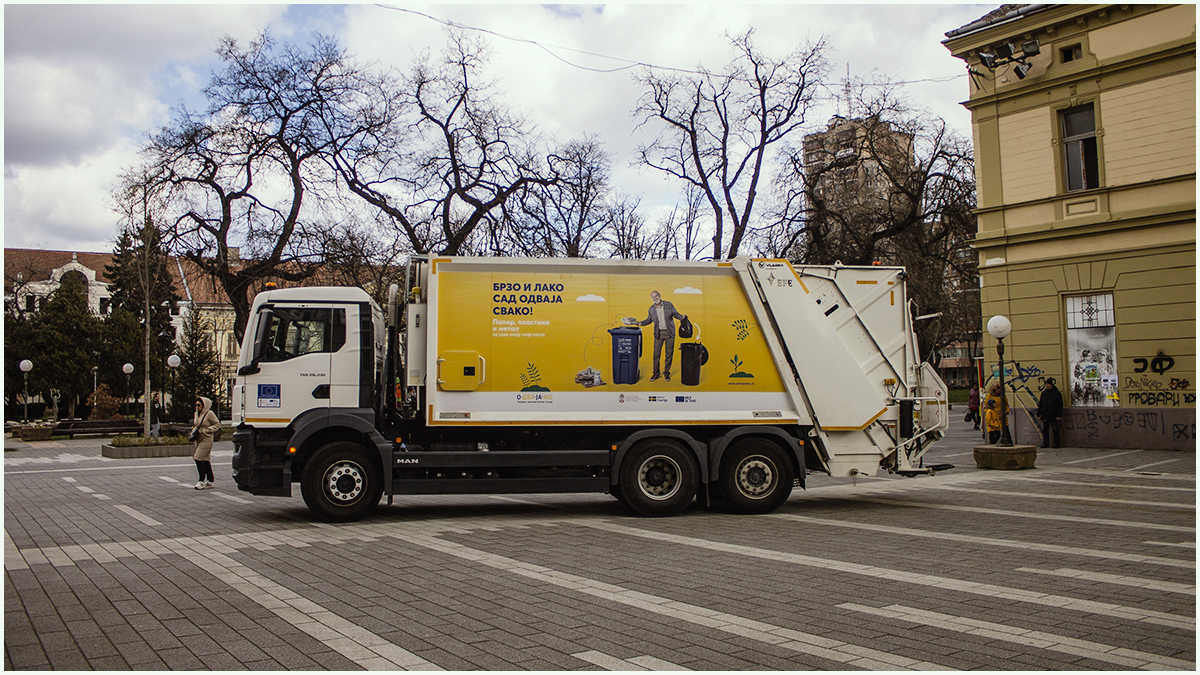
The "O-DVA-JA-MO" project is implemented with the support of the Ministry of Environmental Protection of the Republic of Serbia assisted bz the European Union and the Embassy of Sweden. The project provides expertise and equipment for local authorities in order to design and improve waste separation systems at the point of origin.
Even more important than the cost-effectiveness of recovering high-quality resources from waste and putting them back into use is a healthy environment. 215,000 tons of waste are collected annually in 17 cities that are serviced by 4 regional landfills where the Project for Household Waste Separation “O-DVA-JA-MO” is being implemented. It is estimated that as much as 70,000 tons could be reused. Until now, even if there was a good will to separate waste, it was unfeasible because there was no equipment, organization or system for separation. With the investment of the European Union and the Government of the Republic of Serbia, 26 vehicles for the transport of recycling waste, more than 90,000 containers and bins and a public information campaign were provided.
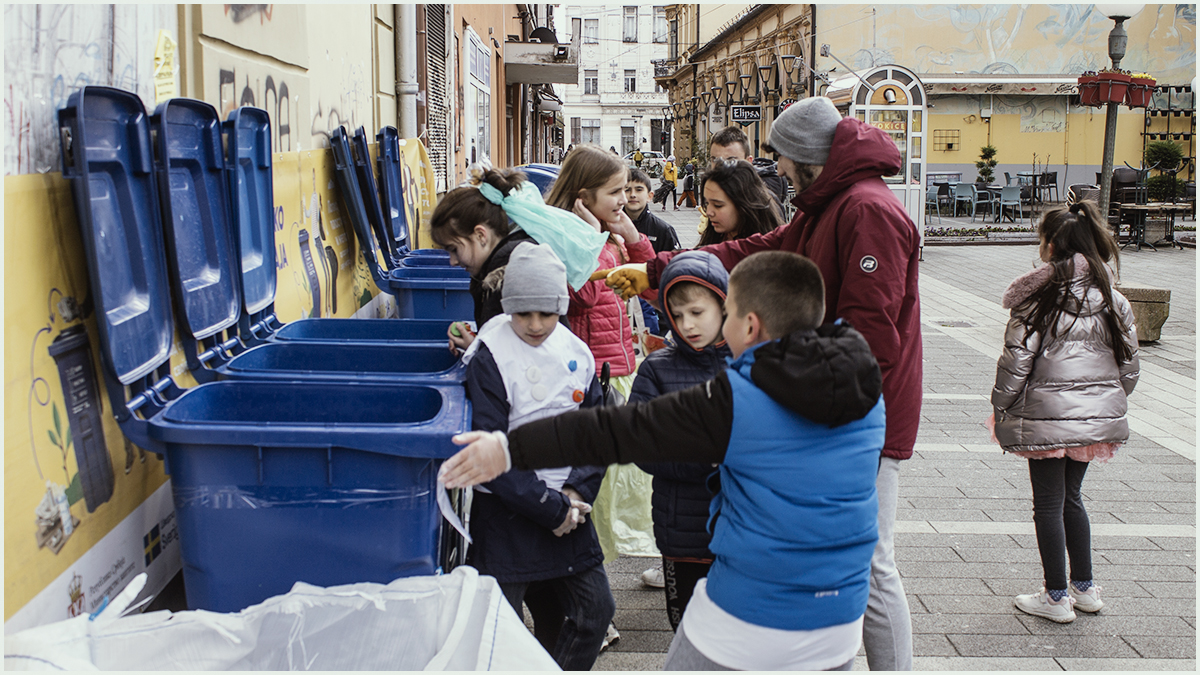
The project was presented with a varied and entertaining music and competition program, in which the youngest fellow citizens of Pančevo participated, and those present had the opportunity to see the exhibition of children's artworks made from recyclable materials. Representatives of the project and local self-government, as well as Mr Dušan Čarkić, Assistant Minister at the Ministry of Environmental Protection, addressed the citizens in relation to the importance of this project, as well as plans for its further implementation.
"I would like to thank first of all the citizens of Pančevo and the local self-government for their support in the implementation of this project, but of course also my colleagues from the Delegation of the European Union and the Embassy of Sweden who financially supported this project." The value of this project is over 7 million euros, and the amount allocated to Pančevo is over 450,000 euros, of which the city of Pančevo participated with 15% of its own funds," said the assistant minister, Mr. Čarkić.
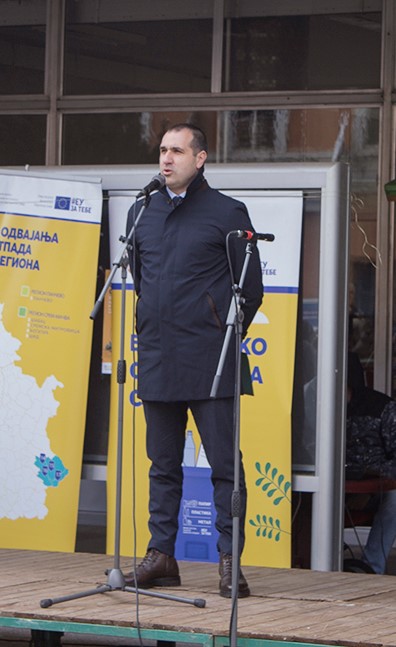
"Today, Team Europe, that is, the European Union and the member states of the European Union, came to support Pančevo. We hope that the citizens of Pančevo will start recycling as it is being already done today in most of Europe. We know you can do it, we've seen the kids and all their ideas and you'll definitely do it well. Today we hand over this project to you," John Glazebrook, program manager of the EISP2 project, underlined in his address.
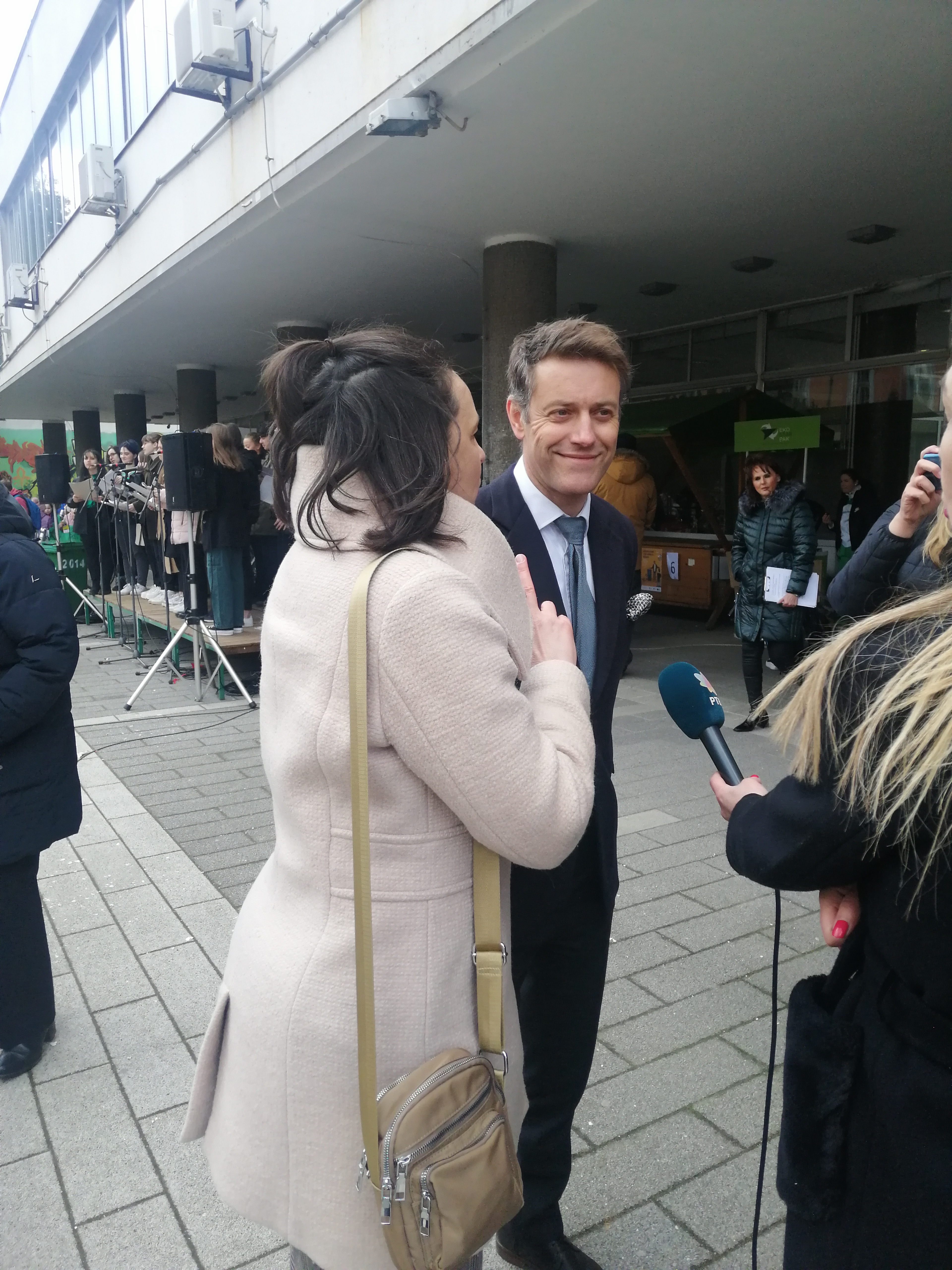
"The project we launched in Pančevo is fully in line with the principles of the circular economy. Through the Project O-DVA-JA-MO, the city of Pančevo received 5077 blue bins in which households will separate paper, cardboard, plastic and metal, 93 blue containers for the same purpose, 93 yellow containers for glass, as well as 2 trucks for transporting the separated waste. In order for this project to function in accordance with the regional regulations, with the great help of the Ministry of Environmental Protection, the procurement of a waste separation line with the participation of the city in the amount of 172 million dinars is underway," said Zdenka Miljković, secretary for environmental protection.
Acting Director of PUC "Higijena" Pančevo Mišo Marković emphasized that PUC "Higijena" through its work promotes the fact that in addition to six primary resources - water, air, oil, natural gas, coal and minerals, a seventh resource, recyclable material, is becoming necessary for civilization."Let's give Pančevo a chance to be a modern city whose citizens separate packaging for recycling. "To make our city clean and to start treating waste as raw material that has the greatest value when households separate secondary raw materials for recycling and dispose of the smallest possible amount of waste in kilograms at the sanitary landfill," emphasized Mr. Marković.
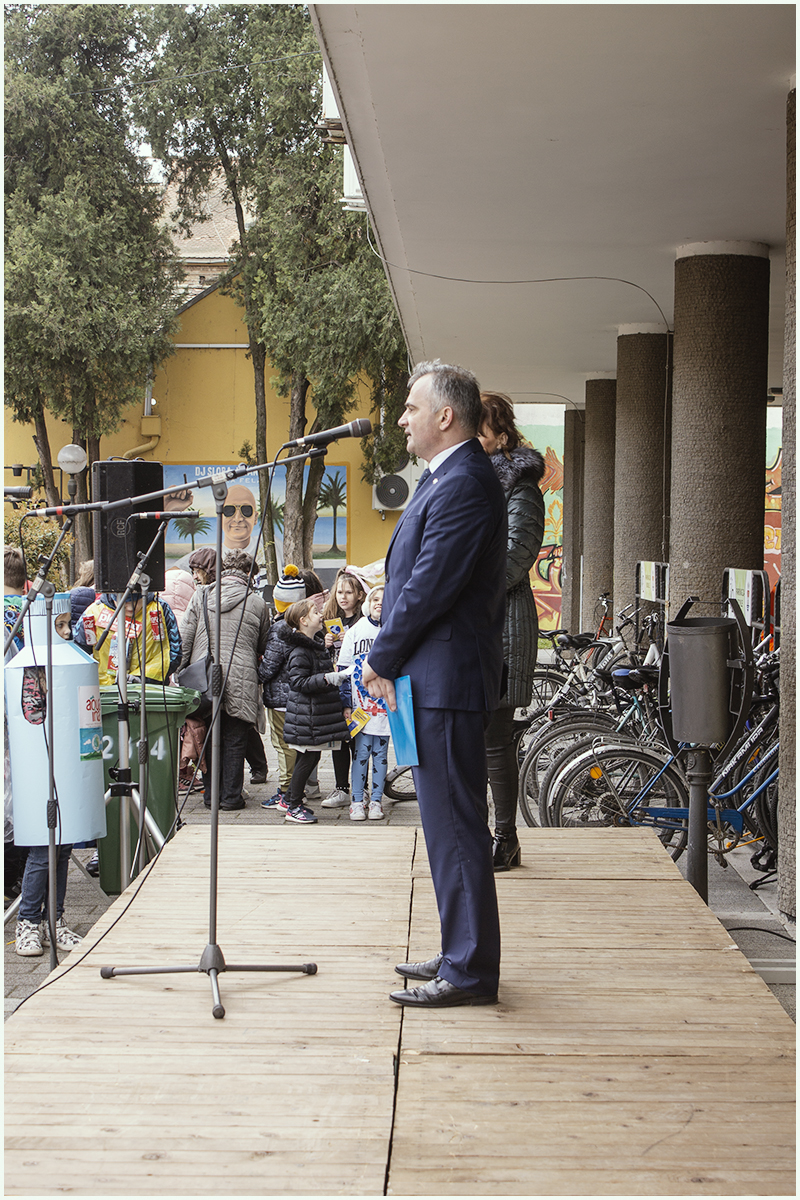
The European Union financed this project with 6 million euros, and Serbian national and local authorities are participating in the project with an investment of 1.8 million euros. Technical support was provided by the Embassy of Sweden to support the national authorities and all 17 local self-governments in the successful implementation of the household waste separation project.
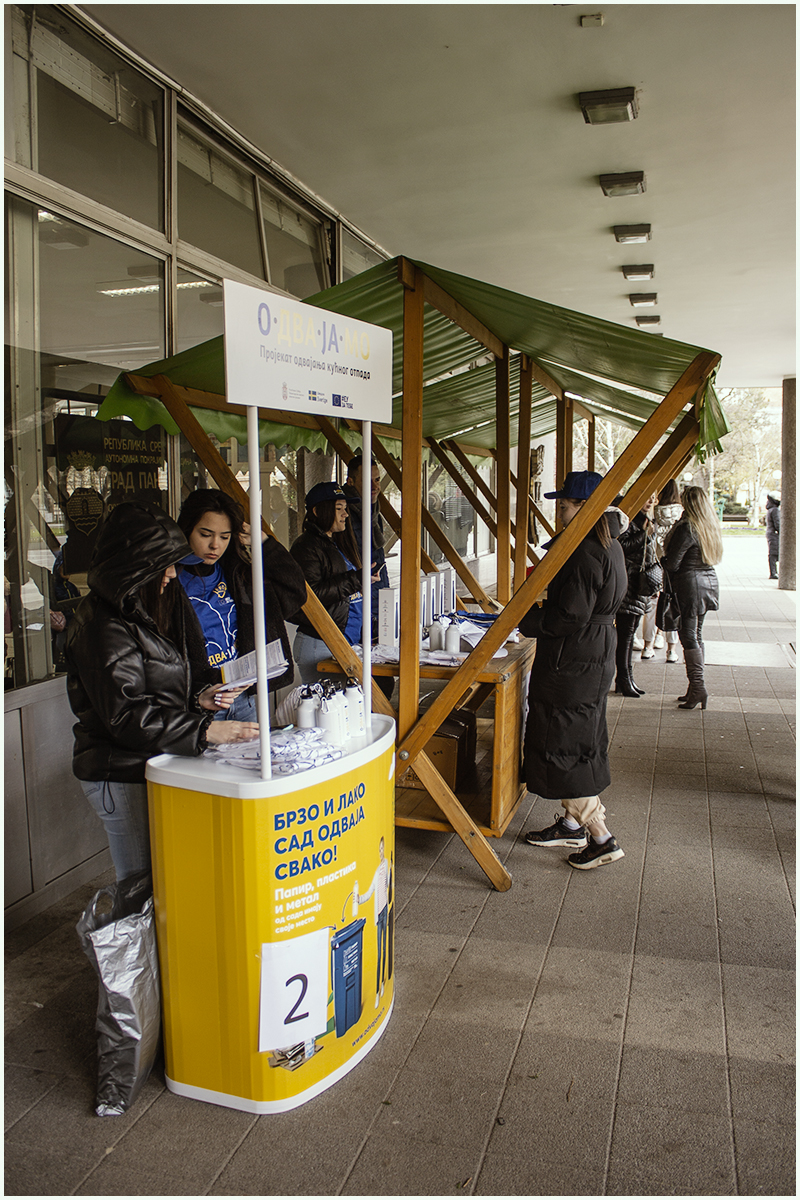
Local governments and public utilities are fully responsible for providing new services.The Waste Management Program in Serbia 2022-2031, adopted by the Government of Serbia as part of EU accession, aims to improve the municipal waste management system through: (1) increased recycling rate, (2) reduced disposal of biodegradable waste in landfills and (3) reduced disposal of waste in unsanitary landfills.